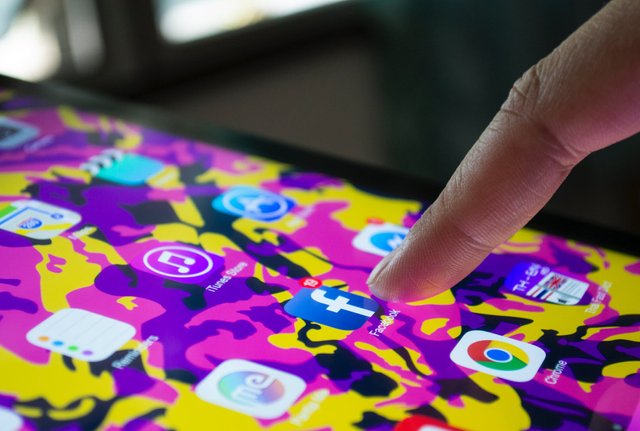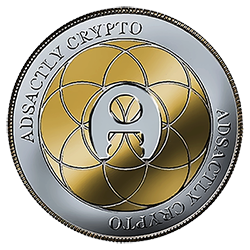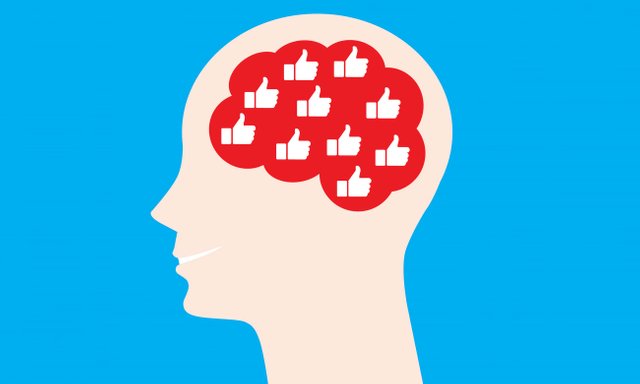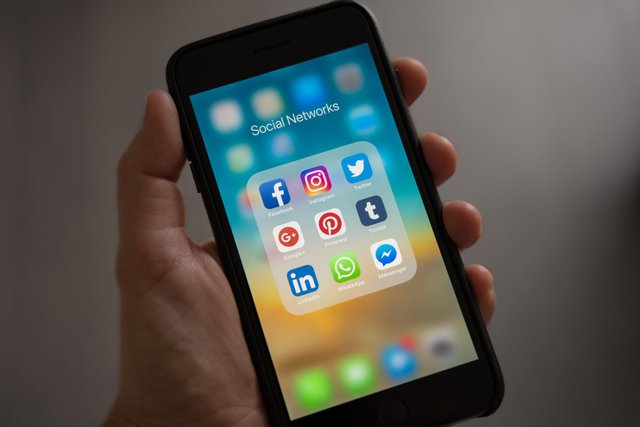ADSactly Tech News - Social Networks and Silicon Valley's Dirty Little Software Design Secret
ADSactly Tech News - Social Networks and Silicon Valley's Dirty Little Software Design Secret
Silicon Valley is keen to exploit the brain chemical credited with keeping us tapping on apps and social media.
The capacity for ‘persuasive technology’ to influence behaviour is only just becoming understood.

I remember growing up in a world without social networks...
A world where you had to actually go to parties or join after school clubs to meet girls...
The closest thing I had to a social network in high school were IRC chatrooms and the party line (an archaic system where you called in and were able to conference call with different people and strike up interesting conversations that could lead to dates if you were smooth on the phone.)
In this article I'd like to go into more detail about the dark side of social networks, particularly their main aim... To control you, your mind and your behavior or at bare minimum, maintain your attention. There is a lot of research coming out about the dark side of social networks and the work being developed in silicon valley in general.
If you are wondering what I'm talking about, take the recent news in which Sean Parker, the 38-year-old founding president of Facebook admitted that the social network was founded not to unite us, but to distract us.
How could this be... When I read about this, I thought it sounded a bit paranoid but it turns out there is a lot of merit in this notion.
“The thought process was: ‘How do we consume as much of your time and conscious attention as possible?’” he said at an event in Philadelphia in November.
He went on to say that Facebook’s architects managed to crack the code and found a way to exploit a “vulnerability in human psychology”, explained Parker, who resigned from the company in 2005.
What vulnerability was he talking about? Well apparently, when someone likes or comments on a post or photograph, he said, “we… give you a little dopamine hit”. This means that there is a sinister tool at work being utilized by Facebook they are biochemical manipulators with a vast empire spanning Web 2.0 built upon a molecule called dopamine.



So what Sean Parker was really saying is that they've turned all their customers into drug addicts motivated on getting their next dopamine hit. I'm really afraid that this is the sad reality of social networks, when 2 + 2 seem to add up I've got to give an idea like this merit and research it further at bare minimum.
Dopamine, discovered in 1957, is one of 20 or so major neurotransmitters, a fleet of chemicals that, like bicycle couriers weaving through traffic, carry urgent messages between neurons, nerves and other cells in the body. These neurotransmitters ensure our hearts keep beating, our lungs keep breathing and, in dopamine’s case, that we know to get a glass of water when we feel thirsty, or attempt to procreate so that our genes may survive our death.
In the 1950s, dopamine was thought to be largely associated with physical movement after a study showed that Parkinsonism (a group of neurological disorders whose symptoms include tremors, slow movement and stiffness) was caused by dopamine deficiency. In the 1980s, that assumption changed following a series of experiments on rats by Wolfram Schultz, now a professor of neuroscience at Cambridge University, which showed that, inside the midbrain, dopamine relates to the reward we receive for an action. Dopamine, it seemed, was to do with desire, ambition, addiction and sex drive.
In practicality, at the heart of dopamine is the effect it causes on a person, when dopamine is released we feel rewarded for an action. It brings a happy and productive feeling that encourages us and motivates us to push even further. In a world where a repost or a like is akin to a quick fix, likes are motivation for many.
Schultz and his fellow researchers placed pieces of apple behind a screen and immediately saw a major dopamine response when the rat bit into the food. This dopamine process, which is common in all insects and mammals, is, Schultz tells me, at the basis of learning: it anticipates a reward to an action and, if the reward is met, enables the behaviour to become a habit, or, if there’s a discrepancy, to be adapted. (That dishwasher tablet might look like a delicious sweet, but the first fizzing bite will also be the last.) Whether dopamine produces a pleasurable sensation is unclear, says Schultz. But this has not dented its reputation as the miracle bestower of happiness.
At the center of social network design which is very much akin to game design is the UX (user experience). You want your customers using your product or service often, regularly or if you've really done well on an everyday basis. You want your platform to become part of their life and its use a personal habit of your customer. But what brings them back for more... Could it be the dopamine?
“We found a signal in the brain that explains our most profound behaviours, in which every one of us is engaged constantly,” says Shultz. “I can see why the public has become interested.”


If you still aren't convinced how about a few more examples to prove my point then?
The British clinical psychologist Vaughan Bell once described dopamine as “the Kim Kardashian of molecules”. I think what he meant by saying this is that it is both addictive and desirable. People always keep coming back for more!
“Even a year or two before the scene about persuasive tech grew up, dopamine was a molecule that had a certain edge and sexiness to it in the cultural zeitgeist,” says Ramsay Brown, 28-year-old cofounder of Dopamine Labs, a startup attempting to increase the rate at which people use running, diet or gaming apps.
“It is the sex, drugs and rock’n’roll molecule. While there are many important and fascinating questions that sit at the base of this molecule, when you say ‘dopamine’, people’s ears prick up in a way they don’t when you say ‘encephalin’ or ‘glutamate’. It’s the known fun transmitter,” Brown says.
Here's another example from an article written in 2017 entitled “How evil is tech?”. In the article, the New York Times columnist David Brooks wrote: “Tech companies understand what causes dopamine surges in the brain and they lace their products with ‘hijacking techniques’ that lure us in and create ‘compulsion loops’.”
The more I learn about this industry the more evil and sinister is truly does look. What happened to the family unit? I've heard countless stories as of late of people sitting down at the dinner table and not even sharing a single word at their meal too busy with social interaction while they sit glued to their smartphones shovelling food in their mouth which they don't even bother to enjoy much.
I studied behaviorist methodology in a post graduate course focused around teaching a few years back. Some of the most impressive research papers I read during my studies were written by the American psychologist BF Skinner who is most famously known for uncovering the best way to reinforce a learned behaviour in rats. The trick was in rewarding them on a random schedule.
“When a gambler feels favoured by luck, dopamine is released,” says Natasha Schüll, a professor at New York University and author of Addiction By Design: Machine Gambling in Las Vegas.
Many feel this is the cornerstone of Facebook’s jaw dropping success: people are constantly checking the site because we never know when the delicious ting of social affirmation may sound.


As people dig into this topic more it seems that so-called “persuasive technology," a label which could be applied to major social networks like Facebook, Twitter and Instagram, really do have the power to influence behaviour and this fact is only just becoming understood now.
Clearly, harnessing the power of the dopamine system to alter habits is effective, just look at the success that Facebook has had in growing their network! It may not even be going too far to consider that regular social network users could even be compared to drug addicts and smokers.
Every habit-forming drug, from amphetamines to cocaine, from nicotine to alcohol, affects the dopamine system by dispersing many times more dopamine than usual. The use of these drugs overruns the neural pathways connecting the reward circuit to the prefrontal cortex, which helps people to tame impulses. The more an addict uses a drug, the harder it becomes to stop.
“The idea behind behavioural economics, that we can change the behaviour of others not via drugs or hitting them on the head, but by putting them into particular situations, is controversial. We are telling other people what is good for them, which carries risks. Training people via systems to release dopamine for certain actions could even cause situations where people can’t then get away from the system. I’m not saying technology companies are doing bad things. They may be helping. But I would be careful,” Schultz says.
I don't know what my fellow @ADSactly society members think about all this but I can show you my hand and let you know that all this honestly scares the crap out of me!
If you've already got rid of your Facebook I commend you. These days I mainly still use it for messenger services only and I wish there was an alternative to that which also gave me access to friends and family members!
What do you think about the potential abuse of dopamine and addiction forming strategies scientifically applied to social network platforms? Should we blame Facebook for operating in this manner? Do you see this scientific application being applied to future software?
Here's a chance for the @ADSactly community to leave their thoughts and opinions on this topic!
Thanks for reading.
Authored by: @techblogger
In-text citations sources:
"Has dopamine got us hooked on tech?" - The Guardian
Image Sources:
The Guardian, Pexels

Click on the coin to join our Discord Chat

Witness proposal is here:
Go To Steem Witness Page
In the bottom of the page type: adsactly-witness and press vote.

Use small letters and no "@" sign. Or, click here to vote directly!
Thank you!



Its the same with steemit when your comment gets upvoted or your blog no different.
Yes and no. Facebook actually makes you sign a TOS in which they own the information you supply them. They then have partners they can sell that data to and turn a tidy profit. What do you get in return?
Those are some good points. But if you want to take it to the next level...start paying people to engage and post content. When like translate into money we have a new beast on our hands. User beware. Lol 😂 Thanks for the post!
Haha, are you being sneaky here? Did you just describe Steem / Steemit? Very clever!
Social media using Dopamine to get people addicted to their platform a machevellian move.
When we do not know what to do with his time, we kill him!
Teenagers would "scroller" immensely on social networks, closing in on themselves and suffering from comparison with their peers who stage their everyday life on Facebook or Instagram. They could not even get rid of their laptops at night, some researchers talking about "nomophobia" - for "no mobile phobia". A problem that does not spare adults, but that affects even more young people who grew up with a phone in their hands.
hy @adsactly
i already upvote and resteem your post please help me to upvote back my post Aina Firnanda
Hi brother @adsactly, Dopamine is important in all nerve responses that are related to the expression of emotions. The level of dopamine regulates many brain functions, such as concentration, mood and movement. However, an excessive amount of this neurotransmitter produces serious mental and physical problems. so you should be very careful with this.
You are a friend, thinking excessively will damage the nerves of the brain. When the brain's nerves are damaged then other activities will be hard to do.
That is very correct friend @adsactly, I agree with you.
A hug brother, and move on.
Nice information, waiting for your next post...
https://steemit.com/iammuslim/@alzalza/i-m-muslim-don-t-panic
vote my post
very good writing..

my dear friend @adsactly..
thank you for sharing with us..
Nice bobblehead friend! Very impressive bobbling going on here!
What social-media really becomes after years of use is a constant stream of information both verbal and visual that at first drenches the mind, quenching its thirst for knowledge, and subduing its curiosity slowly but surly transforms into a torrent that renders the brain heavy and the mind restless.